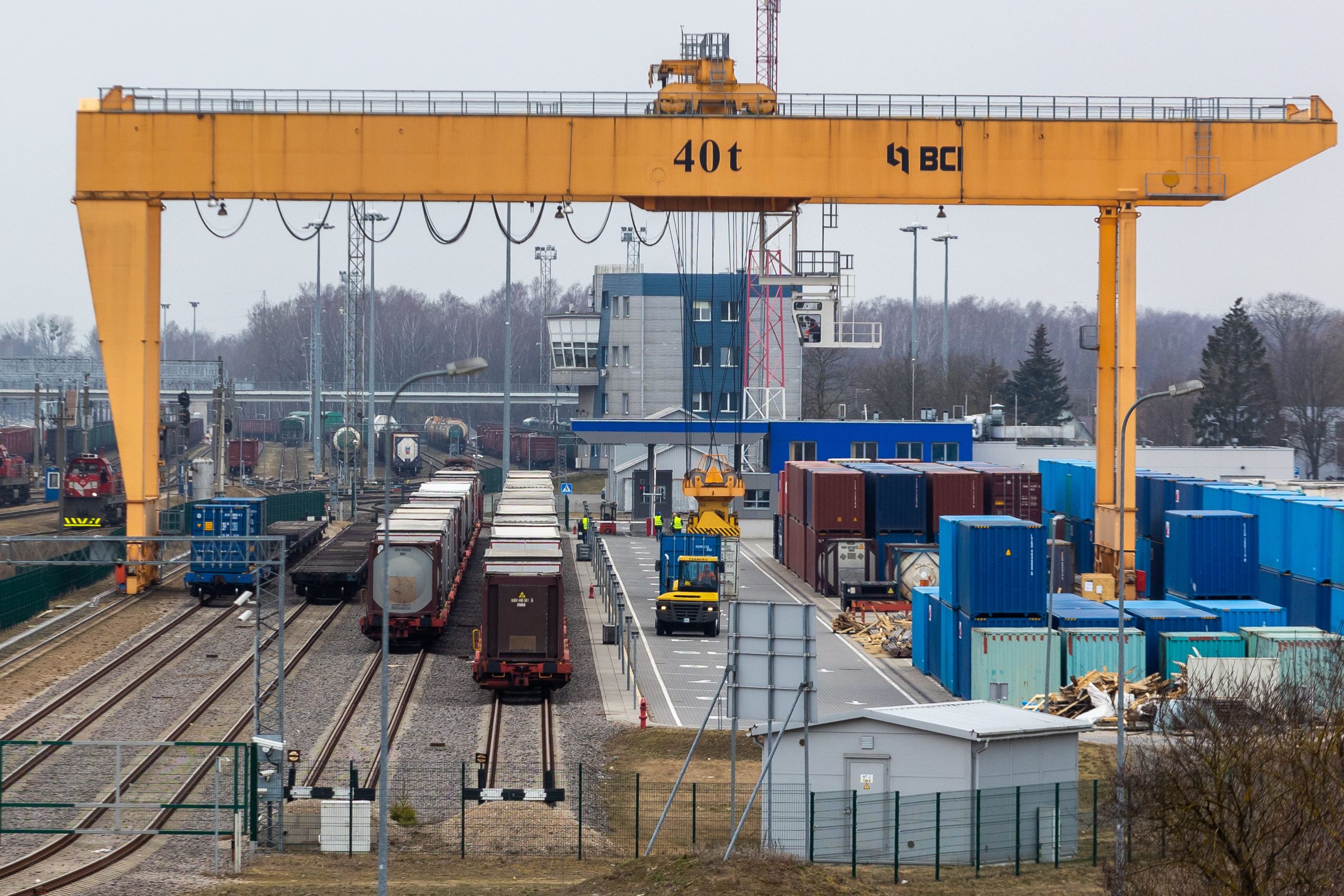 LTG Cargo together with its clients transporting intermodal freight between Lithuania and the European Union countries, saved about 66.5 million kilograms (66,500 tonnes) of CO2 last year. During an official ceremony, the company awarded its clients who saved the most carbon dioxide with green certificates confirming CO2e emissions calculations according to the LTG-approved methodology. In total, such certificates were awarded to about 100 companies.
LTG Cargo together with its clients transporting intermodal freight between Lithuania and the European Union countries, saved about 66.5 million kilograms (66,500 tonnes) of CO2 last year. During an official ceremony, the company awarded its clients who saved the most carbon dioxide with green certificates confirming CO2e emissions calculations according to the LTG-approved methodology. In total, such certificates were awarded to about 100 companies.
“Last year, we saved 66.5 million kilograms of carbon dioxide by transporting intermodal freight to the West. This is the weight of twenty-six Olympic swimming pools. During the year, 29 million tonnes of cargo are transported across the Lithuanian-Polish border. It is obvious that the potential of such transport to reduce the environmental impact of logistics is enormous,” Eglė Šimė, the head of LTG Cargo said.
The Lithuanian rail freight company has developed a mechanism to provide its intermodal freight customers certificates confirming CO2e emission savings, which “can be used both to ensure that transport solutions meet customer strategies and to recover part of the taxes in some countries,” Eglė Šimė explained.
The Baltic market is getting more comfortable with intermodal solutions. By using combined transport, a wider range of logistical challenges of recent years are solved – the impact on the environment, road safety, or extremely dynamic pricing, as well as the lack of drivers.
“More and more businesses are seeing the environmental impact of logistics and listening to the needs of end consumers. Of course, financial incentives (subsidies and tax breaks) or stricter regulation of the logistics sector, as well as efficient, reliable, and environmentally friendly services are important for changes. Investments in railway infrastructure, smooth administrative processes and education of the sector are also necessary. By cooperating with LTG Cargo, we can offer our clients reliable and sustainable logistics solutions, reduce carbon dioxide emissions and make a positive impact on the environment,” notes Jurijs Balaboskins, a member of the board of the Latvian logistics company Effimodal.
By redirecting semi-trailers to last mile transport, fewer workers would be needed to ensure logistics chains, and those already working in this field could return home the same day after delivering cargo from the intermodal terminal to its destination. Moreover, even individual customer containers can be transported by rail in this way.
“We aim to open up our services to businesses that have not had the opportunity to use our services before. Intermodal freight to the West can be transported in smaller quantities – even one container at a time,” the head of LTG Cargo concluded.
Lithuania joined the intermodal rail freight network in the summer of 2021 with the opening of the Kaunas Intermodal Terminal and the dispatch of the first intermodal train on the 1435 mm gauge to Europe. Currently, intermodal freight can be transported to Duisburg in Germany, as well as to Slavkov in Poland, and from these terminals to other European countries. It is estimated that each container or semi-trailer transported by rail from Kaunas to Duisburg saves almost 4,000 kilograms of CO2.
Share on:



